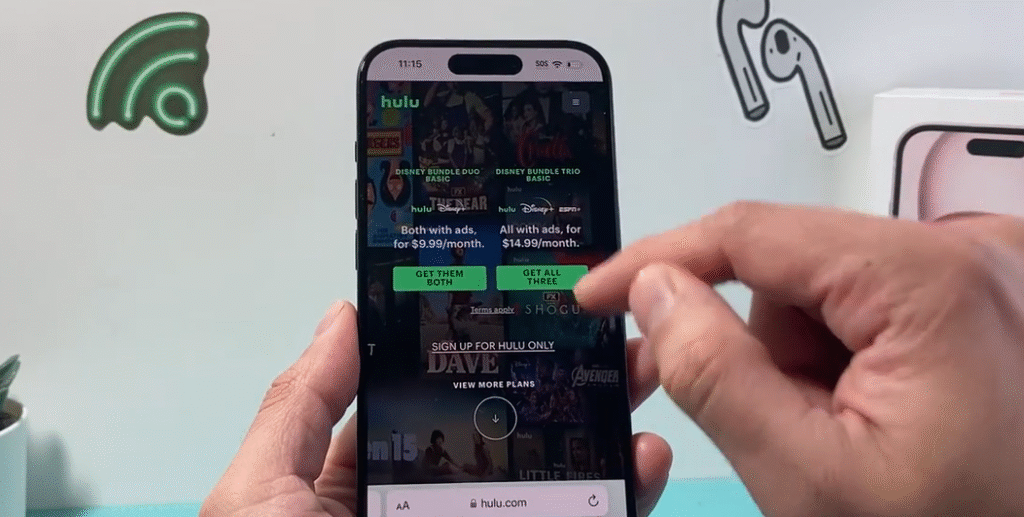Terminating Hulu can feel like a strangely private ritual, similar to canceling a gym membership or returning an unwanted luxury item. The process is surprisingly easy to understand on paper: go to your account page on Hulu.com, click “Your Subscription,” and then choose “Cancel.” However, the process actually has a very layered quality, particularly when third-party billing partners like Comcast, Apple, or Amazon are involved. This frequently perplexes users used to a one-click culture because in those situations, the cancellation process must go through the billing service rather than Hulu itself.
Table: Hulu Subscription Information
| Attribute | Details |
|---|---|
| Service Name | Hulu |
| Type | Streaming Subscription Platform |
| Founded | October 29, 2007 |
| Headquarters | Los Angeles, California, U.S. |
| Parent Company | The Walt Disney Company |
| Ownership | 100% Disney (as of June 2025) |
| Subscribers | About 55 million (March 2025) |
| Revenue Model | Monthly subscription and advertising |
| Popular Originals | The Bear, The Handmaid’s Tale, Only Murders in the Building, Shōgun |
| Reference | Hulu Help Center |

The instructions are still very clear for users who are billed by Hulu: sign in, locate “Cancel Subscription,” and confirm. Hulu entices you along the way by offering to pause your plan for a maximum of twelve weeks, which is remarkably similar to airlines that give credit rather than refunds. Many people find this pause feature especially helpful because it lets them take a break during a busy time of year without losing their carefully curated watchlists. Following the instructions, you will receive a confirmation message and, crucially, an email confirming the cancellation. It is advisable to keep this information handy in case there are any future disputes.
More nuance is added to the process for bundled subscribers. If you subscribed to the Disney+, Hulu, and ESPN+ bundle, Hulu is not immediately deleted when the bundle is cancelled. Your account frequently reverts to the initial subscription through the service that handled your billing instead. For those who have tried navigating cable bundles in the past, where leaving one channel package frequently triggered an entire set of contractual fine print, this creates confusion that feels remarkably familiar. Even on Reddit, users complain about being caught between Hulu pages and Disney logins while trying to find clarity.
This conversation is unintentionally influenced by celebrities. Fans of Selena Gomez exhibit a remarkably efficient but unforgiving viewing culture when they binge-watch Only Murders in the Building and abruptly stop using Hulu after the season concludes. Comparably, the popularity of Jeremy Allen White’s The Bear caused subscriptions to soar during its run, but cancellations ensued after the number of episodes ran out. Customers can switch between platforms thanks to this stop-and-go behavior, which is also very flexible for streaming companies, which must adjust to a subscriber base that isn’t always there.
Each platform has a different method. In order to cancel Hulu, iPhone users navigate to Apple’s Subscriptions menu in Settings, select Hulu, and then select “Cancel.” It is necessary for Amazon customers to visit their Memberships & Subscriptions page. Comcast, Google Play, Roku, and Verizon all have their own procedures. Although this decentralized design might appear overly complicated, it emphasizes how closely streaming is linked to distribution networks. In order to slow down departure and make loyalty a little more sticky, each company wants control over cancellations. For subscribers, this means that before assuming that Hulu.com has the answer, you should carefully check who is billing you.
Assuming that cancellation equates to deletion is a frequent error. Your account stays active unless it is deleted separately, but canceling Hulu guarantees that you won’t be charged. Despite being subtle, the distinction speaks to larger discussions about digital footprints, reflecting the way social networks continue to store user data long after deactivation. People are frustrated by this reality, which many have compared to an incomplete breakup in which one partner is unwilling to let go completely. Nevertheless, there is a bright side: reactivation is much quicker, frequently with special discounts, if you decide to cancel Hulu and later change your mind.
Terminating Hulu has acquired symbolic significance in culture. Due to inflation straining household budgets, more and more people are engaging in what some refer to as “subscription dieting,” which involves switching between Netflix, Hulu, and Peacock based on the shows that are currently airing. As a budgeting strategy, this method is especially creative because it delivers cost savings much more quickly than traditional annual contracts. Sharing spreadsheets that track their rotations, families treat subscription management similarly to meal planning on social media forums. Once thought of as a hassle, canceling is now considered a wise financial decision.
There is a significant impact on the industry. Disney now faces the difficulty of preventing subscribers from leaving Hulu too quickly after spending almost $9 billion to acquire complete ownership of the service. The emphasis on advertising revenue in Bob Iger’s strategy makes cancellations particularly expensive. Each departing user loses both subscription funds and ad impressions. Hulu has made a noticeably better effort at customer retention with its layered cancellation design, which encourages users to pause or downgrade instead of completely leaving. However, it begs the question: should convenience prioritize the client’s freedom or the business’s bottom line?
Cancellation patterns have an impact on programming choices for creators. Hulu’s subscriber base used to be anchored by prestige shows like The Handmaid’s Tale, but in the fragmented world of today, shows need to impress viewers with binge-worthy content almost immediately in order to reduce attrition. Because their success is more dependent on their ability to maintain attention in a crowded lineup than on their long-term brand strength, celebrities who promote Hulu originals frequently end up becoming faces of fleeting loyalty. This change demonstrates how cancel culture in streaming is incredibly powerful in influencing business strategies, in contrast to its social media counterpart.

